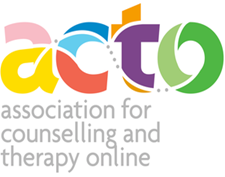What is EMDR (Eye movement desensitization and reprocessing therapy)
EMDR (Eye Movement Desensitisation and Reprocessing) is a comprehensive and evidence-based psychotherapy that enables people to heal from mental health symptoms and emotional distress that come from past disturbing life experiences. It incorporates somatic, emotional, cognitive and narrative elements, and uses alternating eye movements, sounds, or taps (bilateral stimulation) to facilitate the brain’s natural healing process. It involves using side to side eye movements combined with talk therapy in a specific and structured format. EMDR helps you to see things from a different perspective and helps to alleviate symptoms that you are currently experiencing.
What happens in an EMDR session?
Once a collaborative treatment plan has been developed, and the client has been prepared, an initial target memory is selected for EMDR processing. During the EMDR trauma re-processing session, the client is asked to put his or her attention on the target memory. The client then identifies the negative image, belief, emotions, and body sensations related to the event. As the client focuses on this disturbing memory, the therapist uses alternating (left-right) eye movements, sounds, or taps. This facilitates the brain’s natural healing process, and eventually the memory becomes less disturbing and less emotionally “charged”. Clients often experience a range of changes through EMDR processing, including changes in emotions, images, thoughts, and beliefs, and they often gain new insights and awareness. Ultimately, clients are able to put their past in the past, so they are able to live in the present, more peacefully.
Who can benefit from EMDR therapy?
EMDR therapy helps children and adults of all ages. Therapists use EMDR therapy to address a wide range of challenges:
- Anxiety, panic attacks, and phobias
- Chronic Illness and medical issues
- Depression and bipolar disorders
- Dissociative disorders
- Eating disorders
- Grief and loss
- Pain
- Performance anxiety
- Personality disorders
- Post-Traumatic Stress Disorder (PTSD) and other trauma and stress-related issues
- Sexual assault
- Sleep disturbance
- Substance abuse and addiction
- Violence and abuse





